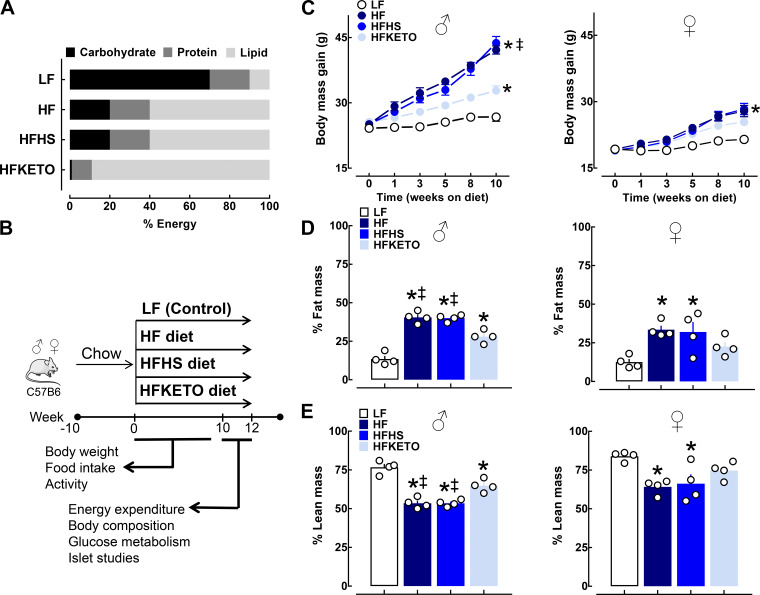Fig. 1.
Dietary carbohydrates modulate body mass gain and body composition in response to high-fat diets. A: macronutrient composition of the control and high-fat diets used in the study. B: schematic representation of the study design. Male and female C57BL/6J mice were studied for a period of 12 wk exposed to either high-fat (HF); high fat, high sugar (HFHS); high-fat ketogenic (HFKETO); or low-fat control diet (LF). C: body mass gain in male and female mice exposed for 12 wk to either LF (n = 8–10), HF (n = 8–10), HFHS (n = 7–10), or HFKETO (n = 7–10) diets. D and E: percentage body fat and lean body mass determined by quantitative magnetic resonance (EchoMRI‐100) in male and female mice exposed for 12 wk to either LF (n = 4), HF (n = 4), HFHS (n = 4), or HFKETO (n = 4) diets. Values are means ± SE;*P < 0.05 denotes statistical significance vs. LF and ‡P < 0.05 denotes significance vs. HFKETO.

